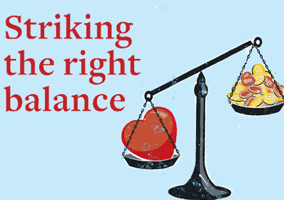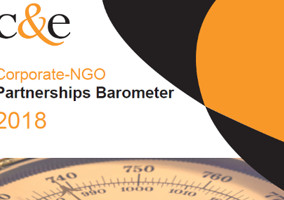Macmillan Cancer Support’s partnership with pharmacy and health and beauty retailer Boots UK has been named the most admired corporate partnership this year.
The award comes from consultancy firm C&E Advisory’s 10th annual Corporate-NGO Partnerships Barometer 2019, which surveyed 101 NGOs and corporates involved in corporate fundraising partnerships.
Macmillan has had a partnership with Boots since 2009 and it has raised over £16.6m. It also involves Boots Macmillan beauty advisers, who have been trained to offer advice on dealing with visible effects of cancer and pharmacists with special training.
Save the Children’s partnership with pharmaceuticals firm GSK was the second most admired this year, having been top in the last three years.
The Samaritans and Network Rail's partnership was the third most admired, and featured in the top three for the first time this year.
Manny Amadi, chief executive at C&E Advisory, said: “It seems undeniable that the overall shift towards deeper, more impactful partnerships – and/or the desire to emulate others in this regard – is set to continue.
“This sea change in approach to partnering (from largely philanthropic, tactical partnerships that were predominant at the inception of the barometer in 2010) seems essential and timely, given the scale of challenges facing our planet and its people.”
Corporates and NGOs surveyed for the barometer chose the Macmillan-Boots partnership for its strategic fit, big impact, longevity, strong clear communications and mutual benefit.
Partnerships predicted to become much more important
93 per cent of NGO respondents to the survey and a similar number of corporates said they see partnerships becoming more or much more important over the next three years.
The report said there was pressure on companies to demonstrate societal considerations, and other drivers included leveraging partners’ assets, brand enhancement and credibility.
Deeper strategic partnering, multi-stakeholder collaborations, impact measurement and use of technology were seen as potential opportunities within corporate partnerships.
The long-term threats to partnerships, on the other hand, were around economic and political uncertainty and the rise of populism.
The report said: “In connection to fears around political uncertainty and the rise of populism, strong references [from respondents] were made to increasing assaults on civil society in some countries, as well as diminishing levels of trust in the various actors involved in cross-sector partnering.
“And finally, a notable number of NGO respondents perceived a possible threat of corporate sector ‘DIY’.”
It also said: “Boundaries between the NGO and corporate sectors continue to blur as challenging circumstances sharpen the focus of NGOs on financial sustainability alongside delivering their social and environmental mission.”
90 per cent of companies want a corporate partnership
In terms of appetite for corporate partnerships, 90 per cent of companies said they aspired to or are already engaged in partnerships, and 76 per cent of NGOs said likewise.
81 per cent of NGO respondents agreed that corporate partners could add more value by using their competencies and assets, rather than financial support alone. This is an increase of 25 per cent on last year.
However, all NGOs said access to financial support was the primary driver for a partnership.
The biggest year-on-year increase in NGOs' reasons for partnering related to long-term stability and impact, with access to people and contacts another key benefit.
The online survey was completed by 101 NGOs and corporates involved in cross-sector partnerships, during June to July 2019.
British Red Cross, Cancer Research UK and WWF UK were among respondents, while corporates from the FTSE100 included Anglo American, Tesco and BP.
|
Related articles













